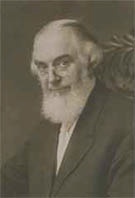
Understanding Jehovah’s Witnesses
 This movement originated with Charles Taze Russell (1852-
This movement originated with Charles Taze Russell (1852-
The title of Jehovah’s Witnesses was assumed in 1931 by Russell’s successor, J.F. (“Judge”) Rutherford. Russell grew up in Pennsylvania. He reacted against doctrines of hell and was attracted by date-fixing for the Second Coming, which he estimated first as 1874, then as 1914. He caricatured the Christian doctrine of the Trinity as “three gods in one person” and held that Christ was the first created being.
In 1879 he launched a magazine, Zion’s Watchtower and Herald of Christ’s Presence. In 1884 he set up Zion’s Watchtower Tract Society in Pittsburgh, and this publishing house produced Russell’s six volumes of Studies in the Scriptures (1886-1904). These set out what has remained basically the Jehovah’s Witness theology. A seventh volume on the Book or Revelation was completed by others in 1917 after Russell’s death, and Arius and Russell are called two of the angels of the Seven Churches.
Arius was a presbyter of Alexandria (d.336) whose heresy basically denied that Jesus was the eternal Son of God. It was specifically against this teaching that the Nicene Creed was originally drawn up. It is striking that the modern Jehovah’s Witness movement sees itself as following Arianism.
Jehovah’s Witnesses view the Son as the first and highest created being – in fact as Michael the Archangel. When he became man, he became only man, and although at his resurrection he was exalted above the angels as a spirit being, his body remained dead, although it was removed from sight by Jehovah. Christ’s appearances were “in materialised bodies”. The holy spirit is the active force of God.
They do not believe in a soul that can live apart from the body, the primary purpose of Christ’s ransom is to give the right either not to die physically or to be restored by the resurrection. Salvation is through faith in the ransom, through baptism by Jehovah’s Witnesses, and through proclamation of their message, together with a moral life. There is virtually no interest in the devotional life. The Lord’s Supper is celebrated once a year only at the Passover, and only those who have the inner witness that they are members of the 144,000 elite may partake.
The sect has been continually expecting Armageddon and the setting up of the Kingdom. This kingdom will be governed by Jesus Christ through the 144,000 in heaven, and on earth through an indefinite number of “men of goodwill,” “other sheep,” or “Jonadabs.” This extra class was discovered when it was obvious that Jehovah’s Witnesses numbered more than the expected 144,000. The rest of mankind will be raised at intervals (except presumably those who fought against God at Armageddon) and will be judged for life or destruction according to their behaviour during the Millennium.
Members of the sect have no freedom to find the truth in the Scriptures themselves. They are told what they must find and may not deviate. In 1950 a translation committee brought out The New World Translation of the Christian Greek Scriptures, later to be followed by the whole Bible. It is notoriously bad as a translation. One of its significant features has been the introduction of Jehovah” into the text of the New Testament.
It was well-established practice by the time of Jesus to say “Adonai” (Lord) whenever the reader came to the sacred Name Yahweh in the Hebrew text. In fact, when the Massoretes put the vowel points into the text (the Hebrew alphabet only has consonants), they put the vowels for Adonai into the consonants for Yahweh. The Septuagint Greek (LXX) in the second century BC simply translated it with the Greek word for “Lord”. English Bible translators have followed this practice with “LORD” (capitals). The New Testament writers fairly consistently used the LXX in all Old Testament quotations and allusions. In many striking instances they took passages referring to LORD God and refer them to Lord Christ. Among other things, the NWT, by deliberate deception, seeks to hide this fact from their members.
 The primary error of the Jehovah’s Witnesses is in what they believe about Jesus Christ. This then has very serious consequences for their understanding of salvation. Issues such as blood transfusion are really peripheral. The central issue is Christ.
The primary error of the Jehovah’s Witnesses is in what they believe about Jesus Christ. This then has very serious consequences for their understanding of salvation. Issues such as blood transfusion are really peripheral. The central issue is Christ.
© Peter J Blackburn, 1991,1999. This material was originally prepared for Antioch School. Permission is given for the printing and use of this material by congregations and individuals.